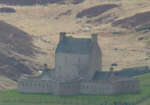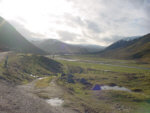History Home Page
Main Home Page
In the beginning
The Celts
The Romans
Crossword-so far
Hadrians Wall
Antonine Wall
Pictish Society
The Wall and the Picts
Timeline up to AD 350
Timeline AD 350 - 794
Timeline AD 794 - 1260
Timeline AD 1260 -
Click Here to Search This Site
HISTORY PAGES
This part of the site is dedicated to Scotland's history from the early mists of time up to the present day. Scotland has a heritage and history rich in battles, laws, freedom, industrial advances and exploration. Whilst this site cannot cover them all, it makes a good attempt at trying. Sit back, relax and enjoy a journey through Scotland's history
If you are considering a vacation, holiday or are simply looking for information, then try the main part of the site: Scotland for Visitors.com If there is any information you would like to see on these pages, then feel free to e-mail the webmaster who is an actual resident of Scotland.
| |
Think you know Scottish History? Prove it, by taking one of the quizzes or crosswords. |
 |
| In the beginning The early days. |
 |
| The Coming of the Romans The Roman Occupation. |
 |
Timelines for Scotland (Scottish) History:
The first part looks at Scotland from the mists of time to AD 350. During that time, Scotland was invaded by the Romans (in part at least) and what followed were years of conflict and peace between the natives and the conquerors.
The second part takes Scotland from the time of St Ninian to the Viking attacks and their conquest of part of Scotland. Along the way, we have the birth & death of St Columba and the civil war between the Picts.
The third part takes Scotland from A.D. 806 when the Monastery of Iona sacked by Norsemen through the lesser known, but still important kings, such as Donald, Edgar and Constantine. In addition the real life King McBeth, who will be well known to readers of Shakespeare, appears on the scene. This section finishes with the death of Edgar in 1107.